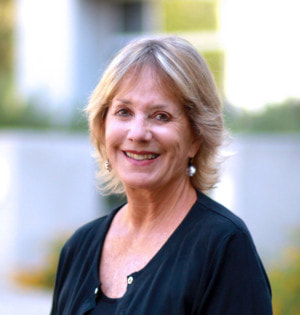WRITE Center webinars provide latest information on hybrid and remote literacy instruction7/29/2020
Each of the four webinars featured a nationally recognized expert in their field.
Designing Purposeful and Engaging Arcs of Writing Instruction in an Era of Remote Learning Dr. Troy Hicks, Professor of English and Education at Central Michigan University Hicks engaged participants in discussing a series of specific guidelines to help teachers and students with digital writing. Topics included writing for multiple purposes and audiences, combining written words with multimedia, selecting topics that relate to material the students are learning, providing scaffolding and differentiated instruction where needed, using 21st century learning tools to assess student writing, and giving students multiple opportunities for low-stakes, ungraded writing. The webinar video, slides, and a follow-up blog are available here. Narrative Writing, Now More Than Ever Kelly Gallagher, Author, Teacher, Literacy Education Consultant Gallagher emphasized the importance of giving attention to student choice, student agency, and student voice. He recommended including assignments that allow students to write their memories and record their thoughts, feelings, and concerns in a journal. He included examples of writing assignments where students could build from large general topics to increasingly focused themes, use a story board to learn how components of a story could be reordered, then rewrite one of their stories by reordering the time frames. Resources from the webinar are available here. Writing Poetry to Read Poetry in Online Spaces Carol Jago, English Teacher, Author, Past-President of the National Council of Teachers of English Jago demonstrated techniques and provided lesson examples designed to engage students in reading, responding to, and analyzing poetry in online spaces. Teachers were encouraged to use children’s lived experiences during the current COVID-19 pandemic as inspiration for poetry writing assignments – “What did you do previously? What do you do now?” Jago provided poetry examples for each of her recommendations and emphasized the importance of students understanding the poet’s craft in order to develop intellectual stamina and fluency. Handouts, slides, video from the webinar, and poems subsequently submitted by webinar participants are available here. Designing Academic Writing Assignments for All Students, All Environments, All Classrooms Jim Burke, English teacher, Author Burke presented his model of design thinking for inclusive teaching of academic writing. Online or in-person, Burke recommended: develop an understanding of your students, observe where problems exist, generate ideas, build an assignment, test the assignment with feedback from students, and implement. He emphasized the importance of orienting students to the materials and methods they will be using. He reviewed numerous apps but cautioned against introducing new apps that require too much assistance. The webinar video, slides, and sample assignments are available here. This fall, the WRITE Center is offering three presentations in its fall Webinar Learning Series, A Time for Action: Centering Equity through Responsive Transformative, Healing Literacy Instruction. 9/14/2020 3:30-5:00 p.m. PST About More Than Words: Culturally Responsive-Sustaining Remote Writing Instruction David Kirkland, Distinguished Professor of English and Urban Education, New York University 9/21/2020 3:30-5:00 p.m. PST When Life Gives You Watermelons: Writing Communities, Race, and Transformative Justice Maisha T. Twinn, Chancellor’s Leadership Professor, School of Education, UC Davis 9/28/2020 3:30-5:00 p.m. (PST) Words as Balm: Civic Writing and Healing in Precarious Times Antero Garcia, Assistant Professor, Graduate School of Education, Stanford University Additional information and registration are available here. The WRITE Center is a national research center located at the University of California, Irvine dedicated to conducting research and sharing evidence-based practices for teaching writing in secondary classrooms. Directed by Professor Emerita Carol Booth Olson, the Center is supported by a grant from the Institute of Education Sciences, U.S. Department of Education. Comments are closed.
|
Resources for:
|
|


